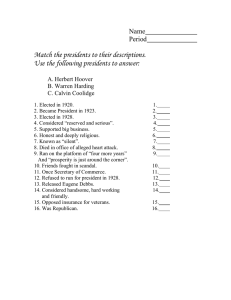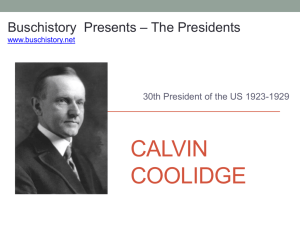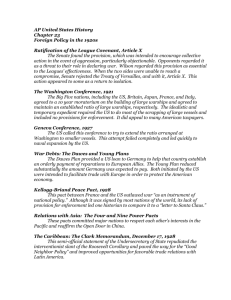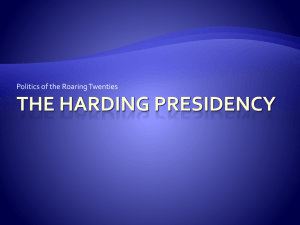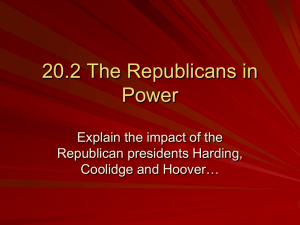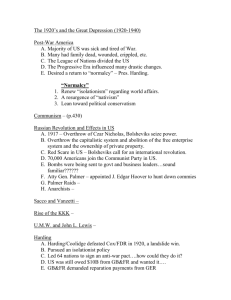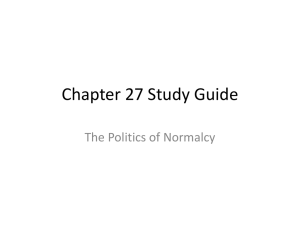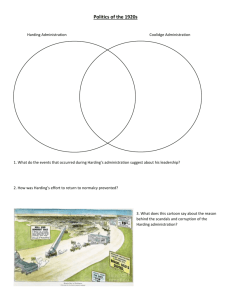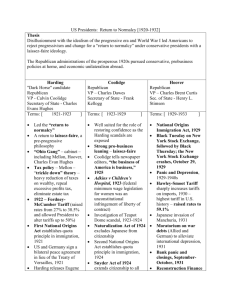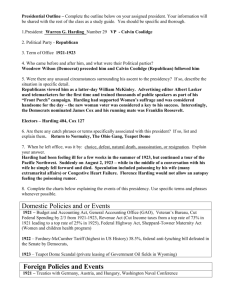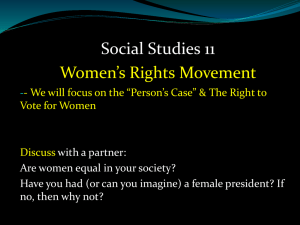Economics and Politics in the 20s
advertisement
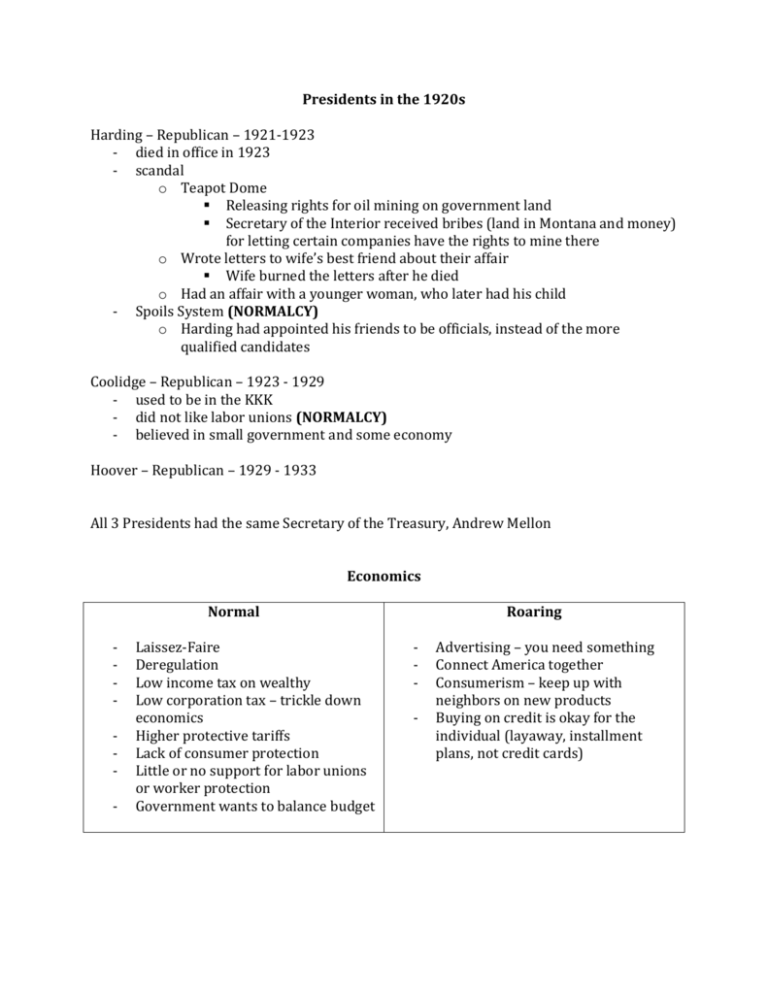
Presidents in the 1920s Harding – Republican – 1921-1923 - died in office in 1923 - scandal o Teapot Dome Releasing rights for oil mining on government land Secretary of the Interior received bribes (land in Montana and money) for letting certain companies have the rights to mine there o Wrote letters to wife’s best friend about their affair Wife burned the letters after he died o Had an affair with a younger woman, who later had his child - Spoils System (NORMALCY) o Harding had appointed his friends to be officials, instead of the more qualified candidates Coolidge – Republican – 1923 - 1929 - used to be in the KKK - did not like labor unions (NORMALCY) - believed in small government and some economy Hoover – Republican – 1929 - 1933 All 3 Presidents had the same Secretary of the Treasury, Andrew Mellon Economics Normal - Laissez-Faire Deregulation Low income tax on wealthy Low corporation tax – trickle down economics Higher protective tariffs Lack of consumer protection Little or no support for labor unions or worker protection Government wants to balance budget Roaring - Advertising – you need something Connect America together Consumerism – keep up with neighbors on new products Buying on credit is okay for the individual (layaway, installment plans, not credit cards) Foreign Policy 1920 - Rejection of the Treaty of Versailles; US does not join League of Nations 1921-1922 – Washington Naval Conference; disarmament (voluntarily giving up weapons), reduced size of navy 1924 – Dawes Plan – conservative/traditional mindset – not isolationist as US states it is… Dawes Plan ties US economy to the rest of the world 1. 2. 3. 4. US lends money to Germany Germany pays war reparations to Great Britain and France Great Britain and France is going to pay WWI loans to US Eventually, Germany will pay US back money loans with interest after many years 1928 – Kellogg-Briand Pact – all nations who signed pact pledged not to go to war NOT REALISTIC – it only takes 1 country to go to war 1928 – Clark Memorandum – repudiates (takes back) ideas from the Monroe Doctrine and the Roosevelt Corollary No more interest in Latin America
